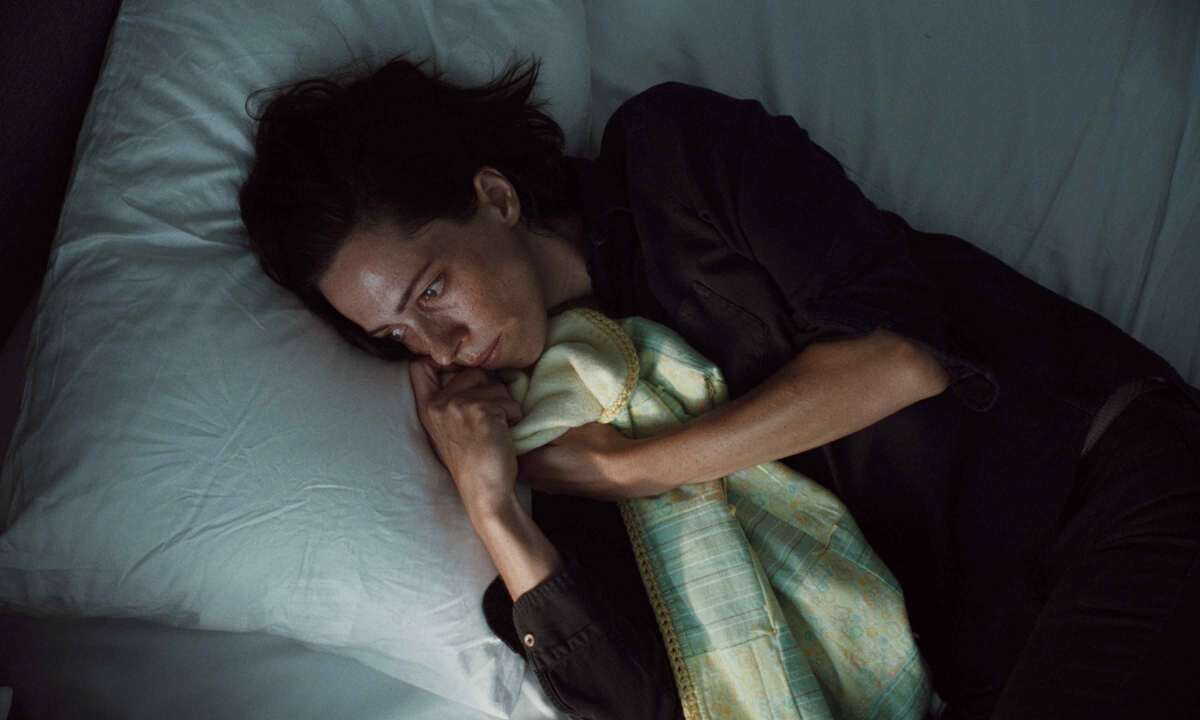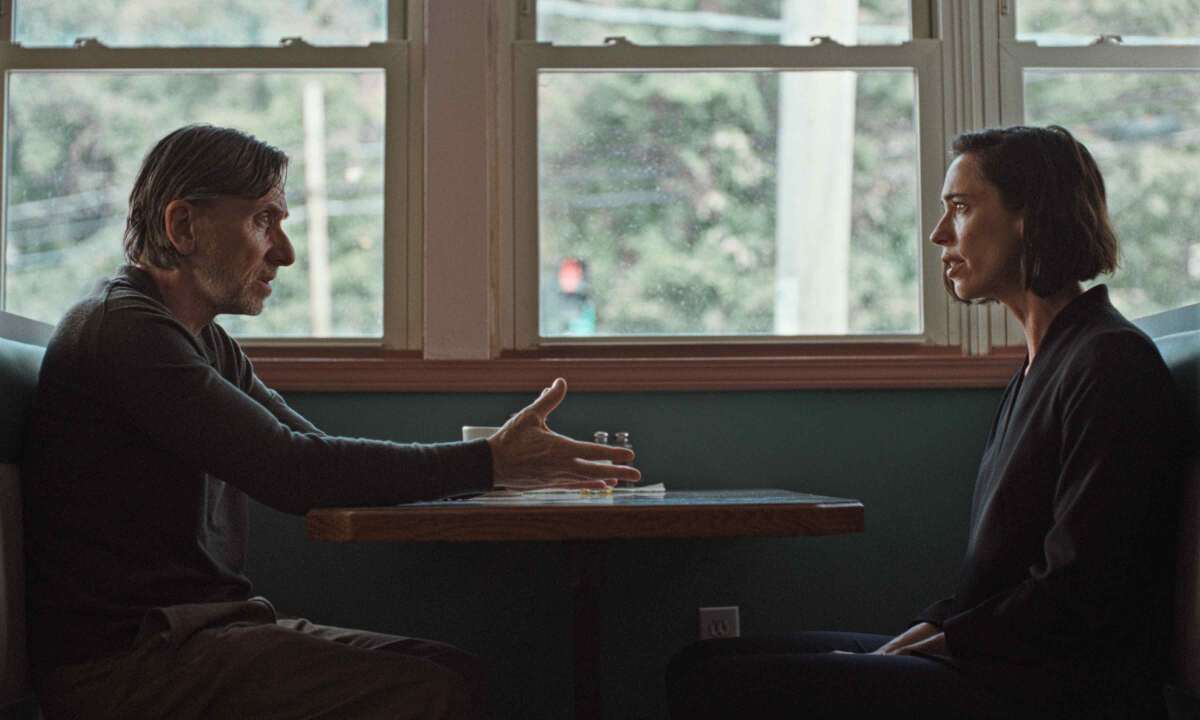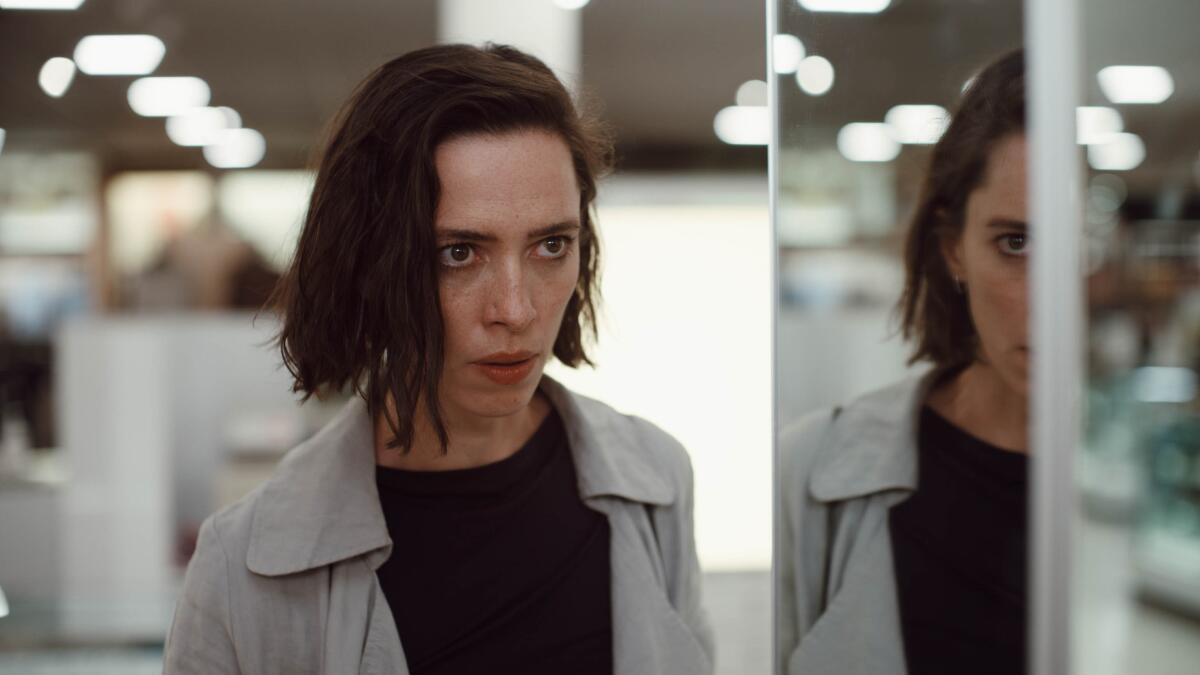Review: Rebecca Hallâs thrilling performance breathes life into the creepy âResurrectionâ

What makes Margaret run? In the darkly arresting, committedly preposterous psychothriller âResurrection,â she races up and down city streets, her limbs pumping like pistons, a furious spring in her every accelerated step. Itâs her morning exercise regimen, but her demonic pace and half-panicked, half-determined expression suggest something else; Margaret, played by the ever-brilliant Rebecca Hall, doesnât seem to be running toward so much as away from something. That becomes literally the case one day at work, when something alarming catches her eye and sends her fleeing and flailing, desperate to keep outrunning a past that seems to have finally caught up with her.
The writer and director Andrew Semans (âNancy, Pleaseâ) keeps his heroine locked in his cameraâs sights, even when she doesnât make that easy. When we first meet her, Margaret seems coolly in control of herself and her surroundings, from her swanky high-rise apartment to the glassy executive suite where she works. That control expresses itself in ways that you could almost dismiss as standard-issue âtightly woundâ: in the physically intense but emotionless sex she has with a married co-worker (Michael Esper); in the sternly supportive advice she gives an intern (Angela Wong Carbone) whoâs in a bad relationship; and above all in the close watch she keeps on her own college-bound daughter, Abbie (a terrific Grace Kaufman).
For your safety
The Times is committed to reviewing theatrical film releases during the COVID-19 pandemic. Because moviegoing carries risks during this time, we remind readers to follow health and safety guidelines as outlined by the CDC and local health officials.
Margaret and Abbieâs well-observed bond â full of mutual affection, even as the latter increasingly chafes under the formerâs tight reins â is one of the best things about âResurrection.â When strange things start to happen to Abbie â a weird discovery, a biking accident â we naturally share Margaretâs parental concern. But Abbie, in turn, supplies us with a logical point of view on Margaret, regarding her mother first with mild exasperation and then with rapidly mounting alarm. And what finally gives this movie its sustained tension is the degree to which it persuades us to abandon logic altogether, to situate ourselves on Margaretâs wavelength even as her words and actions defy comprehension. When the camera tracks her down an office corridor or across a park courtyard, it almost seems to be pulling her â or is it being pulled by her? â into the depths of a menacing new world.

Or perhaps an old one. The soon-revealed source of Margaretâs anxieties is a man named David (an ineluctably sinister Tim Roth), whom she starts spotting in public places â at a work conference, in a department store â and whom she finally musters up the nerve to confront: âGo away,â she murmurs, all that steely assertiveness suddenly gone from her voice. David, for his part, claims not to know her at first, but within moments casually reveals that he very much does. These two have some history, one that takes its time unraveling itself, though both actors are superb at suggesting the toxic core dynamics through expressions and intonations: Hall with downward glances and muttered expletives, Roth with a cult leaderâs voice of insinuating, mock-pleasant calm.
In time the whole truth will come pouring out, in a monologue that Margaret delivers, for minutes on end, to an unblinking camera that seems to have finally succeeded at pinning her down. The backstory details are grisly, appalling and borderline laughable, and without Hallâs unwaveringly sympathetic, ferociously internalized performance, laughter might indeed have been the appropriate response. But Hallâs peerless ability to get under a protagonistâs skin (to say nothing of yours), previously on display in the biographical drama âChristineâ and the supernatural horror film âThe Night House,â compels us to take Margaret seriously. So does the filmmaking, whose every strategy â the long takes and gray-to-murky tones of Wyatt Garfieldâs cinematography, the stabbing arpeggios of Jim Williamsâ score â provides a formal complement to Hallâs every tic and gesture.

Thereâs more at work here than just Hallâs unsurprising mastery of exposed-nerves emoting; both she and Semans, striking unnervingly dissonant chords at every turn, seem to be operating in near-perfect harmony. Which is not to suggest that the movie itself is near perfect. Like Alex Garlandâs recent, more demonstratively unhinged âMen,â with which it would make an enjoyably shivery feminist-horror double bill, âResurrectionâ doesnât entirely shake off the feel of a genre picture wrapped around a carefully worked-out thesis, one thatâs sometimes overly eager to make sure we donât miss its #MeToo-era resonance or its feminist-horror bona fides.
Both films take inspiration â at least in their no-holds-barred closing passages â from the intense corporeal horror of filmmakers like David Cronenberg. Both, too, cultivate an ambiguity of intent and meaning, though what âResurrectionâ has to say about male gaslighting, maternal guilt, female trauma and the return of the repressed is ultimately clear enough. Perhaps a bedeviled mind, pushed far enough, has ways of forging its own fragile reality. A mind seemingly at rest might still, in fact, be running faster than ever.
âResurrectionâ
(Not rated)
Running time: 1 hour, 43 minutes
Playing: Laemmle Glendale; Alamo Drafthouse Cinema Downtown Los Angeles; Laemmle NoHo 7, North Hollywood; Laemmle Monica Film Center, Santa Monica; Harkins Theatres Chino Hills 18; available Aug. 5 on streaming platforms
More to Read
Only good movies
Get the Indie Focus newsletter, Mark Olsen's weekly guide to the world of cinema.
You may occasionally receive promotional content from the Los Angeles Times.











